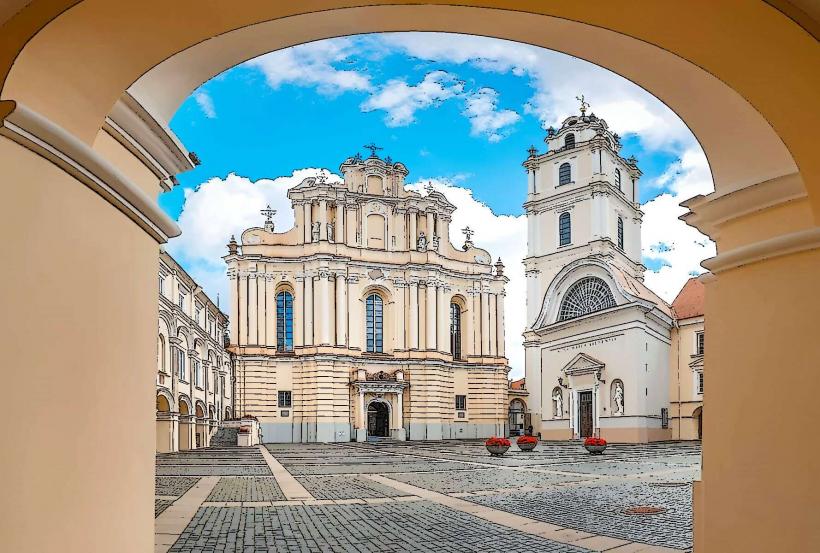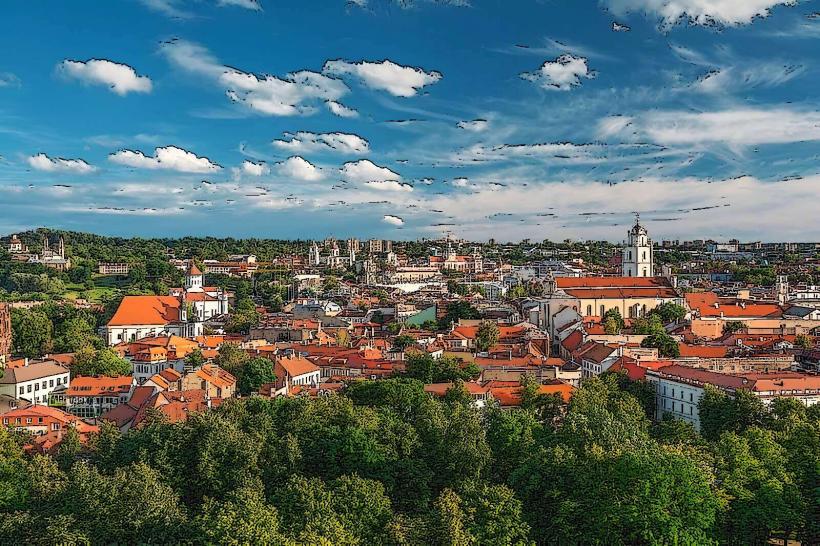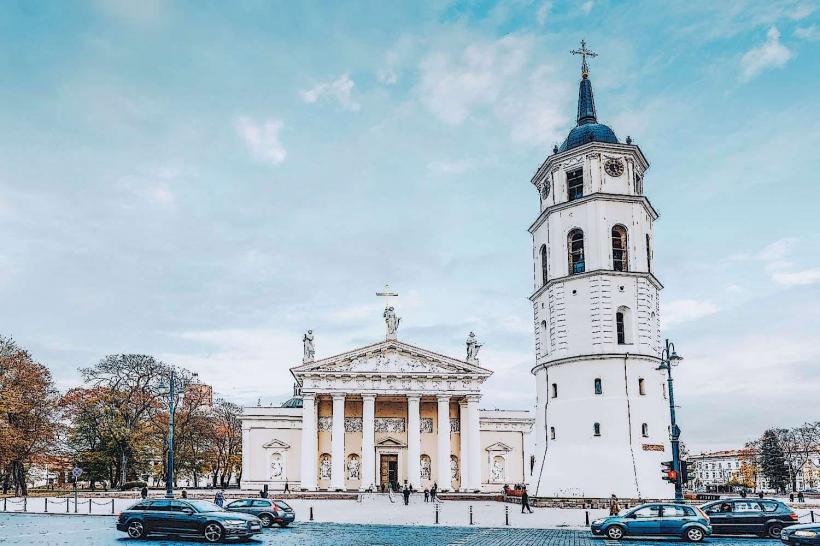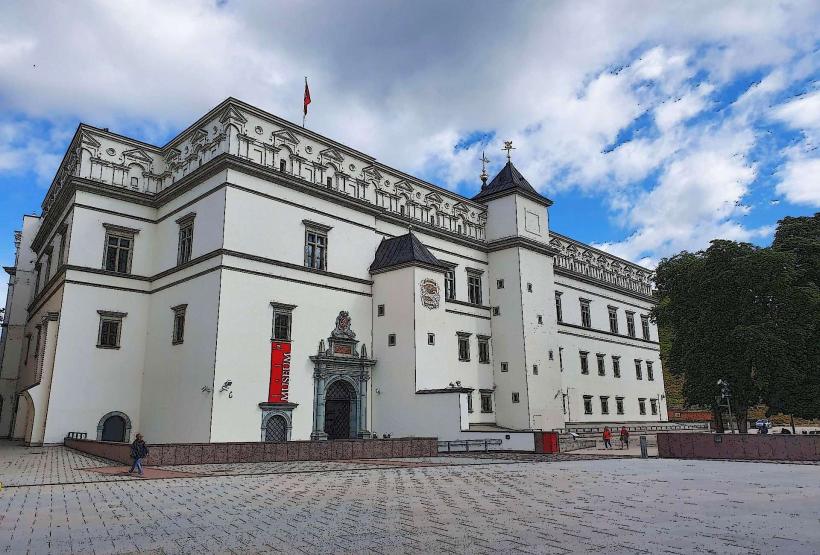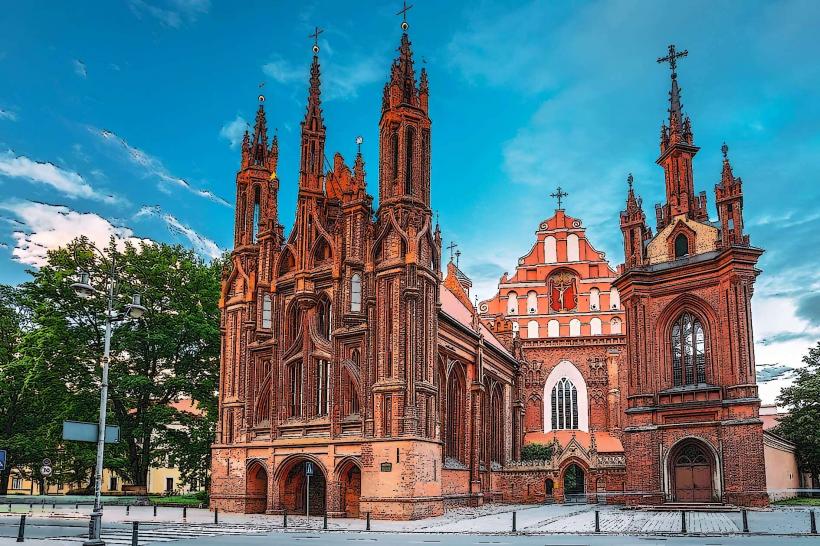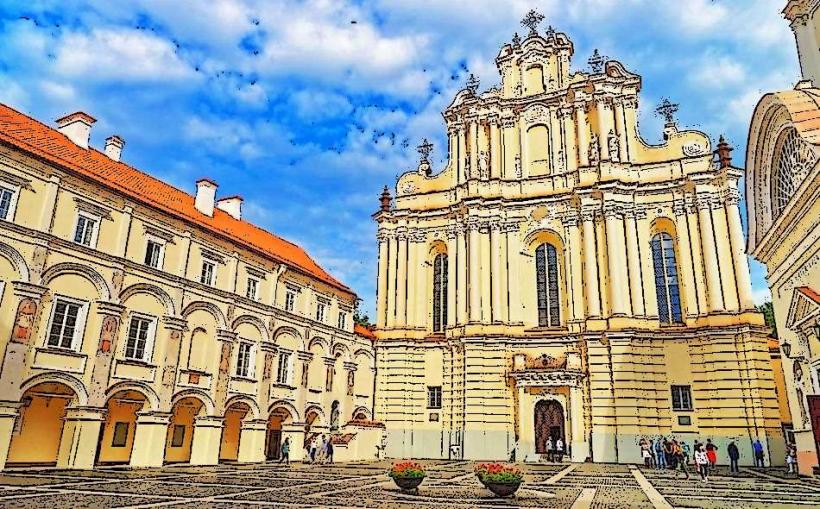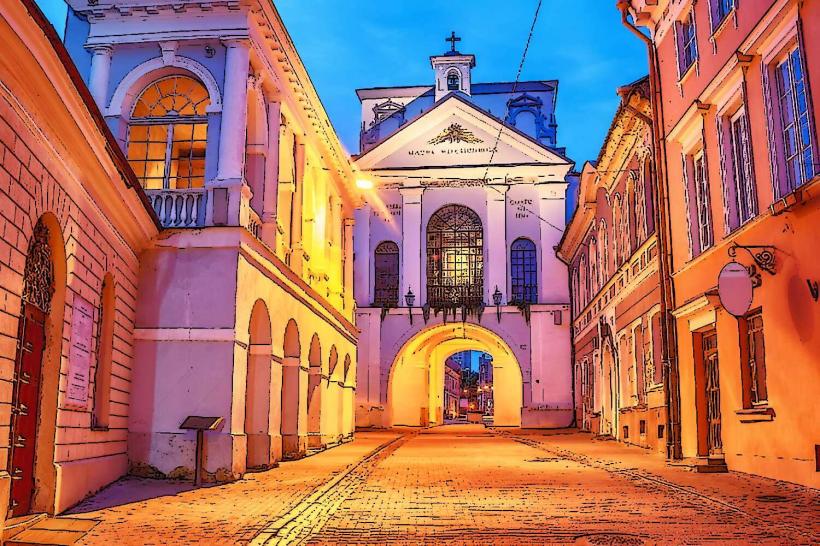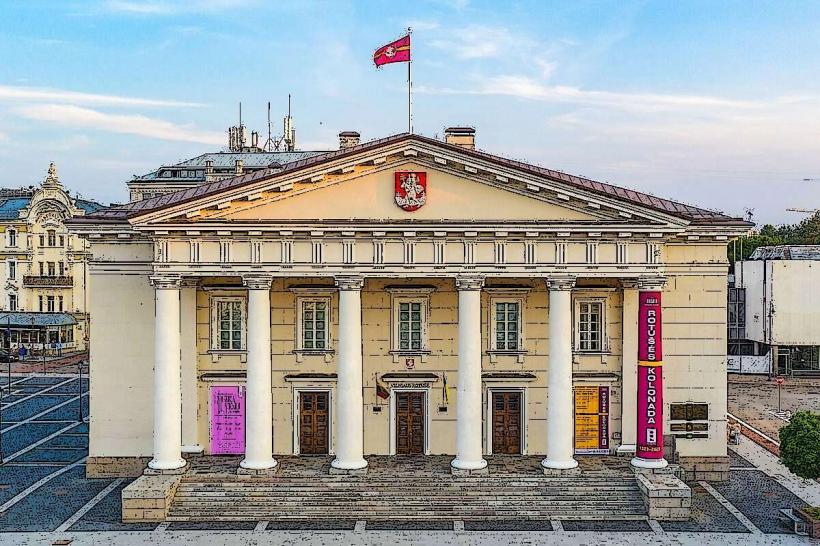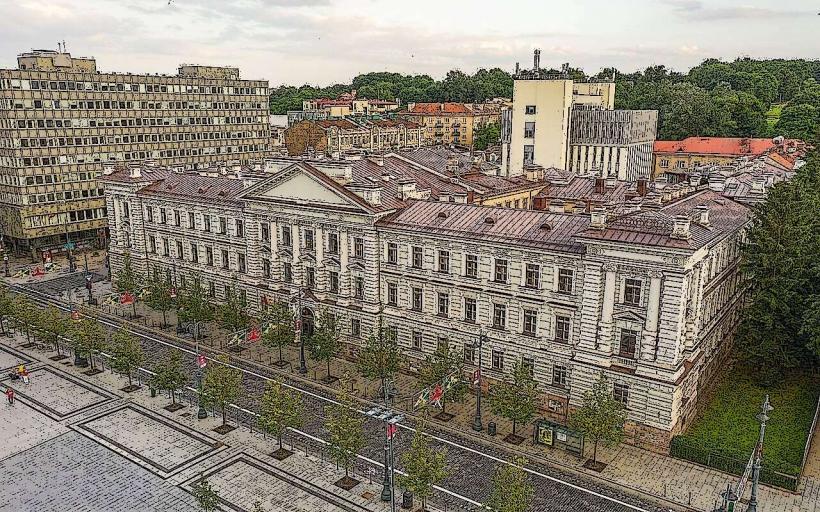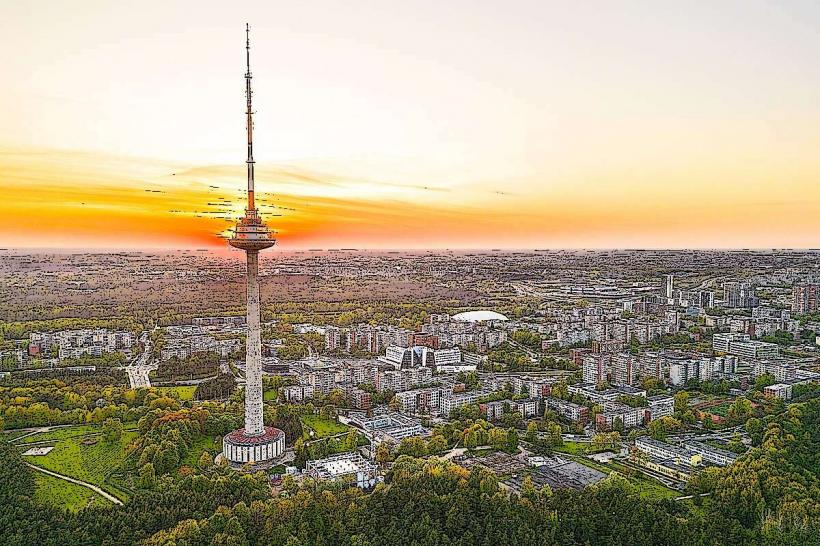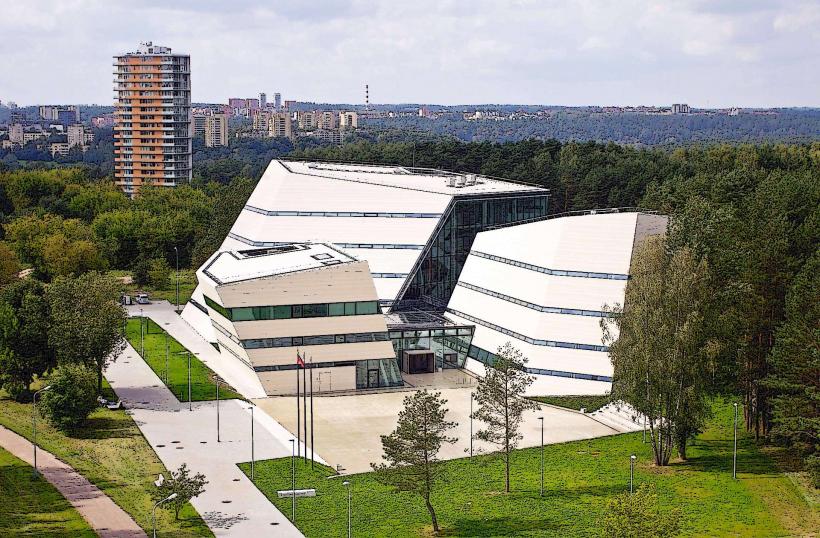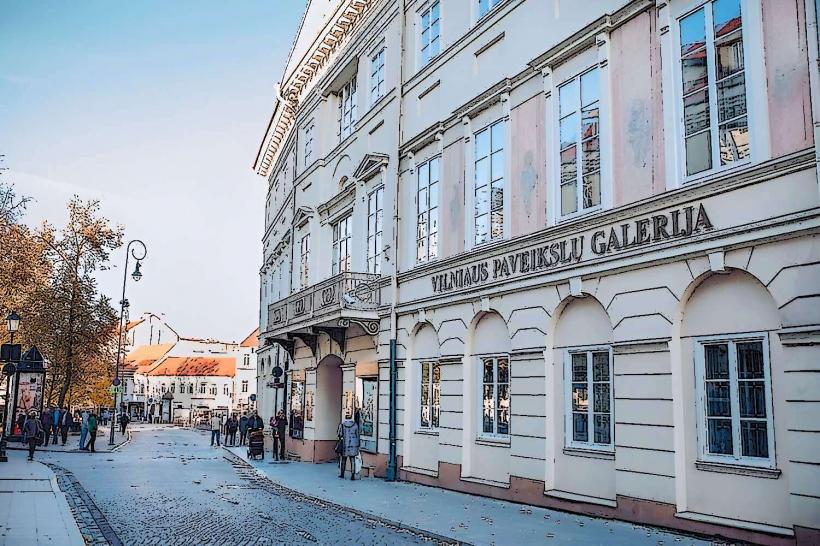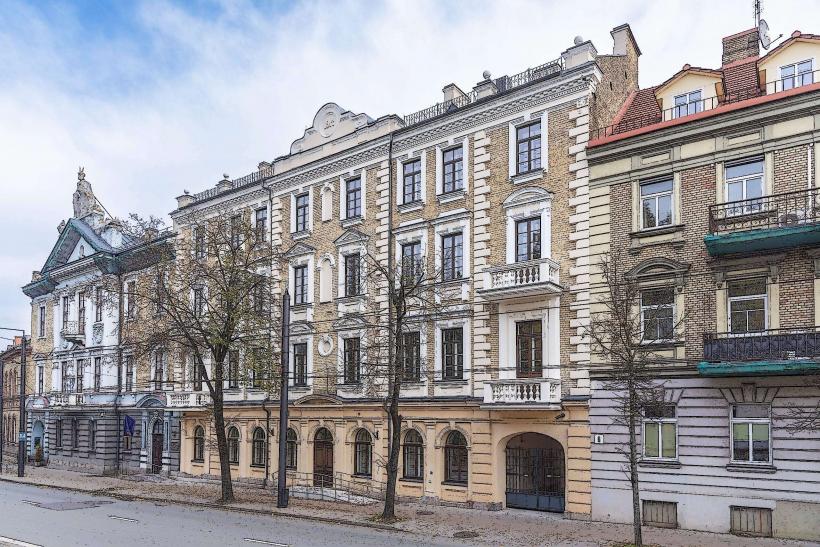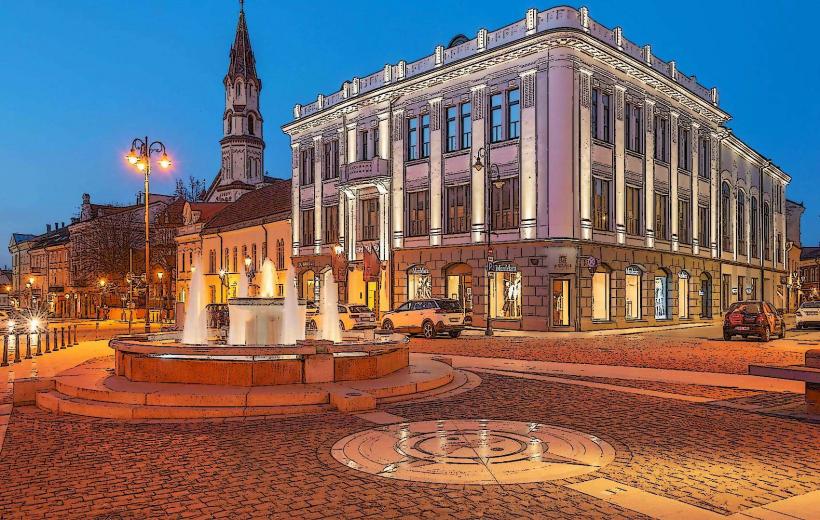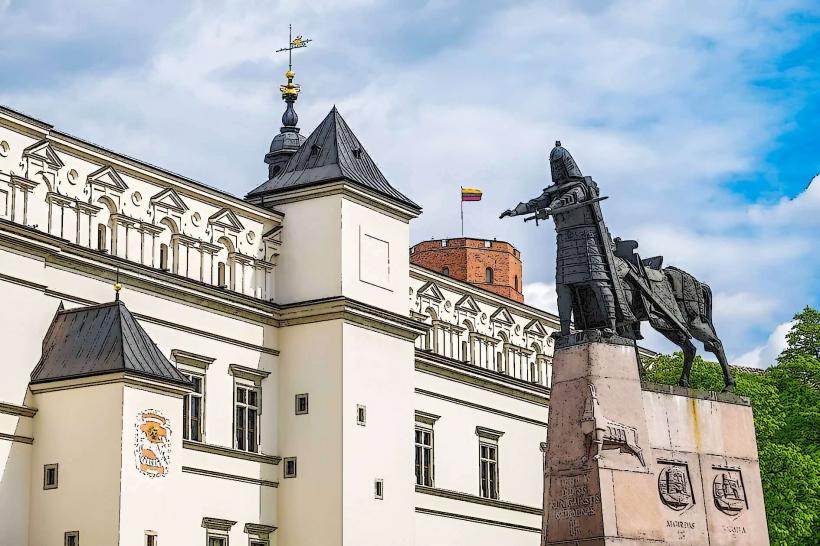Information
Landmark: Museum of Applied Arts and DesignCity: Vilnius
Country: Lithuania
Continent: Europe
Museum of Applied Arts and Design, Vilnius, Lithuania, Europe
Museum of Applied Arts and Design (Taikomosios dailės ir dizaino muziejus) – Vilnius
The Museum of Applied Arts and Design (Lithuanian: Taikomosios dailės ir dizaino muziejus) is one of Vilnius’ key cultural institutions, showcasing the rich history of applied arts, design, and craftsmanship in Lithuania. This museum highlights both traditional and modern applied arts and design, reflecting the creativity and innovation in Lithuanian craftsmanship over the centuries.
History and Background
Foundation and Evolution: The museum was founded in 1962 as a way to preserve and showcase the best examples of Lithuanian applied arts and design. It was established by the Lithuanian Ministry of Culture with the goal of preserving and promoting the traditions of craftsmanship in the country. Over time, the museum’s collection expanded to include a broad range of artistic works, with a special focus on design and craftsmanship in various forms.
Location: The Museum of Applied Arts and Design is located in the heart of Vilnius, within the historical area of the Old Town, making it easily accessible to both locals and tourists. The museum's location adds to its cultural significance, as it is situated in a city known for its artistic heritage and architectural beauty.
Architectural Setting
The museum is housed in a beautiful neoclassical building, reflecting the historical context of its founding and the period during which it was designed. The building itself is a significant architectural landmark in Vilnius, with its elegant facade and well-preserved interiors providing the perfect backdrop for the exquisite collections on display.
Exhibitions and Collections
The museum's collections offer a wide range of works across different media, showcasing the diversity of applied arts and design in Lithuania. The museum’s exhibitions are often divided into permanent and temporary collections, highlighting different aspects of Lithuanian artistic traditions and modern developments.
Traditional Crafts: The museum's permanent collection includes a wide array of traditional Lithuanian crafts, such as textiles, woodworking, pottery, metalwork, and jewelry. These objects reflect the deep connection of Lithuanian artisans with the country’s folk traditions and the importance of craftsmanship in daily life and cultural identity.
Design: The museum also features a large collection dedicated to modern applied arts and design, including industrial design, graphic design, and interior design. The collection emphasizes the development of Lithuanian design in the 20th and 21st centuries, showcasing the work of both established designers and emerging talents.
Temporary Exhibitions: In addition to its permanent collections, the museum hosts temporary exhibitions that often focus on contemporary design trends, international design, and the work of individual designers or art movements. These exhibitions allow the museum to stay relevant in the ever-evolving world of design and craftsmanship.
Lithuanian Art Nouveau: The museum is especially known for its collection of Art Nouveau objects, with many decorative arts and furniture pieces that represent this style. These items offer insight into the artistic developments of the early 20th century, a period of significant growth and change in Lithuanian design.
Decorative and Functional Objects: The museum’s exhibits feature items that blend artistic and functional qualities. These include ceramics, glass, textiles, furniture, and silverware, showcasing the aesthetic beauty and the practical use of art in everyday life.
Education and Cultural Programs
Workshops and Events: The Museum of Applied Arts and Design is not just a place for passive viewing but also a dynamic cultural center. It offers a variety of workshops, lectures, and interactive programs that allow visitors to engage more deeply with the works on display. These educational initiatives often focus on traditional craftsmanship techniques, as well as modern design practices.
Collaboration with Designers and Artists: The museum frequently collaborates with contemporary designers, craftspersons, and artists to showcase the latest trends and innovations in the world of applied arts. These collaborations highlight the growing field of design thinking and sustainability in contemporary art and craftsmanship.
Visitor Experience
Interactive Exhibits: The museum is designed to be an engaging and interactive space for visitors. In addition to viewing the static collections, visitors can often take part in guided tours, workshops, and events that enhance their understanding of applied arts and design.
Permanent and Temporary Collections: The museum is divided into different sections, each focusing on a specific aspect of applied arts. The permanent collection is designed to offer a comprehensive look at the evolution of Lithuanian applied arts, while the temporary exhibitions keep the experience fresh and dynamic for repeat visitors.
Shop and Café: The museum also features a gift shop that sells crafts, design objects, and books related to the museum’s exhibitions. A café within the museum provides visitors with a space to relax and reflect on their experience.
Conclusion
The Museum of Applied Arts and Design is a must-visit destination for anyone interested in the intersection of art, design, and culture in Lithuania. Its combination of traditional craftsmanship and contemporary design makes it a fascinating place to explore the creative history and ongoing innovation in Lithuanian visual arts. Whether you're interested in the rich folk traditions of Lithuanian craftsmanship or the cutting-edge trends in modern design, the museum offers a rich and diverse collection that showcases the breadth of talent and creativity in the country.


